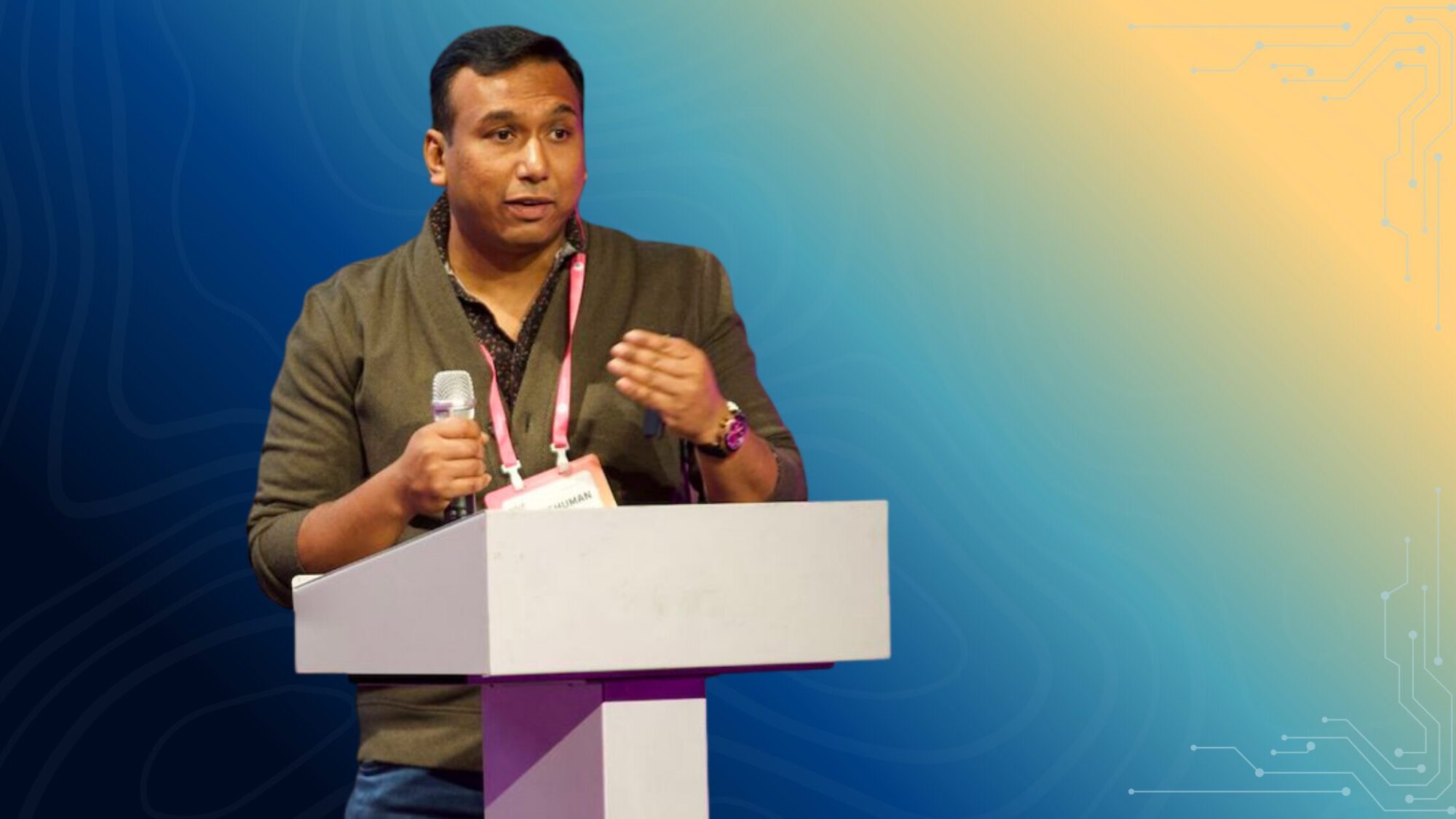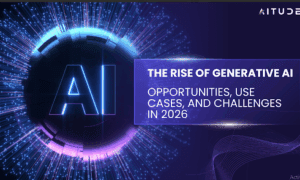This is an interview with Anshuman Guha, Staff Engineer Data Scientist
Can you introduce yourself and share your background in Gen AI? What sparked your interest in this field?
I’m Anshuman Guha, a Machine Learning Engineer with over 7 years of experience in deploying Generative AI solutions, enhancing NLP systems, and leading multi-million-dollar projects. My proficiency lies in transforming research into scalable engineering products and optimizing ML models. My journey in Gen AI began with my fascination for its potential to revolutionize how we interact with technology, especially in areas like natural language processing and real-time systems. Over the years, I’ve developed multilingual and multimodal features, improved system efficiency, and worked on projects that leverage advanced techniques such as instruction tuning and retrieval-augmented generation.
I hold a Master’s degree in Computer Science and have actively contributed to the field through research, patents, and speaking engagements. My passion for Gen AI continues to drive me to explore innovative solutions that can enhance operational efficiency and customer satisfaction.
How has your journey in the world of Gen AI evolved? Can you walk us through some key milestones that led you to your current position?
My journey in Gen AI has been a dynamic blend of learning, research, and practical application. It began with my role at SparkCognition, where I led data scientists in developing neural network models for industrial IoT, which sparked my interest in leveraging AI for real-world problem-solving. At Capital One, I spearheaded multiple high-impact credit card fraud models and improved deployment processes, significantly reducing errors and turnaround times. This experience honed my skills in scaling AI solutions and led to a patent for a model-scoring deployment pipeline.
Currently, as a Staff Engineer focusing on NLP, I’ve translated cutting-edge research into engineering products, such as multilingual features for large-scale CRM systems. Leading Gen AI-based real-time write-assist product development and enhancing search precision through advanced models are other highlights. These experiences have positioned me at the intersection of research and practical application of AI, driving innovation in customer service and operational efficiency.
You’ve mentioned working on multilingual and multimodal adaptability in language models. Could you share a specific challenge you faced in this area and how you overcame it?
One significant challenge I faced in implementing multilingual and multimodal adaptability was ensuring the models performed consistently across various languages and contexts. Each language has unique nuances, grammar, and cultural elements that can complicate model training and deployment. To address this, I extended the Grammarly CoEDIT research to 15 languages using techniques like Low-Rank Adaptation (LoRA) to fine-tune large language models efficiently. This involved developing custom logit processors to prevent irrelevant edits and reduce bias in generation. Additionally, by implementing a robust evaluation framework, I ensured that the models preserved native accents and delivered accurate results across languages. This approach allowed us to maintain high-quality outputs and improve customer satisfaction globally.
In your experience with Gen AI write-assist products, what’s the most unexpected insight you’ve gained about improving customer satisfaction?
In developing Gen AI write-assist products, one unexpected insight was the profound impact of personalized and context-aware suggestions on customer satisfaction. It’s not just about improving grammar or tone; understanding the user’s context and intent can drastically enhance their experience. By integrating real-time feedback and focusing on multilingual and context-aware adaptability, I found that users felt more understood and supported, which led to higher engagement and satisfaction. The ability to provide tailored, relevant suggestions in real time significantly boosts the perceived value of the AI assistant, making it an indispensable tool for users.
Can you describe a moment when you realized the true potential of Gen AI in transforming business operations? How did this realization impact your approach to AI development?
A pivotal moment was during my work on real-time write-assist products. Observing its impact on improving agent efficiency and customer interactions, I saw firsthand how Gen AI could transform business operations by automating complex tasks and enhancing decision-making processes. This experience shifted my approach to AI development, emphasizing scalability and real-world applicability. By focusing on integrating AI solutions seamlessly into existing workflows and ensuring they address specific business needs, I’ve been able to drive tangible improvements in operational efficiency and customer satisfaction. This realization has guided me to prioritize user-centric and adaptable AI solutions in my projects.
You’ve worked on reducing bias in AI models. What’s a practical tip you can share with other AI professionals to ensure their models operate fairly at scale?
A practical tip for reducing bias in AI models is to incorporate diverse training data that accurately represents the various user groups the model will serve. This involves not only curating balanced datasets but also continuously monitoring and evaluating the model’s performance across different demographics. Additionally, I recommend implementing bias-detection techniques, such as fairness metrics and adversarial testing, during both training and deployment. Regular audits and leveraging human-in-the-loop systems can further help identify and mitigate unintended biases. This proactive approach helps ensure models operate fairly and equitably at scale.
Thinking about the future of Gen AI, what’s an emerging application or use case that excites you the most? How do you see it potentially changing industries?
One emerging application of Gen AI that excites me is its potential in personalized learning and education. By tailoring educational content to individual learning styles and pace, Gen AI can create more engaging and effective learning experiences. This could revolutionize the education sector by making learning more accessible and inclusive, allowing students to master concepts at their own speed. Moreover, it can assist educators by providing insights into student progress and identifying areas for improvement. As this technology matures, it has the potential to transform industries by fostering a more skilled and adaptable workforce, ultimately driving innovation and growth.
In your experience, what’s the biggest misconception about Gen AI that you often encounter? How do you address it?
A common misconception about Gen AI is that it’s a magic solution capable of solving any problem without significant effort. Many people underestimate the complexity involved in designing, training, and deploying these models effectively. To address this, I emphasize the importance of understanding the underlying technology, the need for quality data, and the continuous effort required for model maintenance and improvement. Educating stakeholders about the practical challenges and setting realistic expectations helps foster a more informed and collaborative approach to implementing Gen AI solutions.
Lastly, for those aspiring to work in Gen AI, what’s one piece of advice you wish someone had given you when you were starting out in this field?
One piece of advice I wish I’d received is to focus on mastering the fundamentals of machine learning and deep learning before diving into the complexities of Gen AI. A strong foundation will enable you to better understand and innovate in the rapidly evolving landscape of generative technologies. Additionally, staying curious and continuously learning about the latest research and developments will help you adapt and succeed in this dynamic field. Networking with professionals and being part of AI communities can also provide valuable insights and opportunities for growth.
Thanks for sharing your knowledge and expertise. Is there anything else you’d like to add?
Thank you for the opportunity to share. I’d just like to emphasize the importance of collaboration and ethical considerations in the development of Gen AI. Working together across disciplines can drive innovative solutions while ensuring they are used responsibly and benefit society as a whole. Always strive for continuous learning and adaptation, as the field is rapidly evolving

































